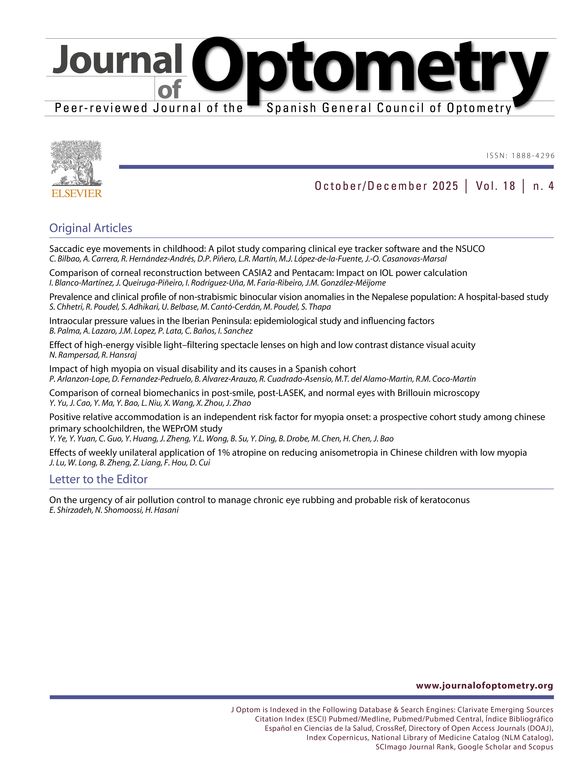As in any other scientific areas, there is an information overload in Optometry and Visual Sciences due to the increasing number of publications and journals in this area. This situation has been defined with the term infobesity1 or infoxication,2 and it is currently leading to new conflicts and problems that should be solved in order to avoid the corruption of science and the banalization of scientific information.3 High amounts of information are being received every day about new “said” advances in Vision Science through social networks and mailing that sometimes does not allow researchers to concentrate on their work and on developing creativity. Likewise, researchers are receiving every week invitations to be members of the editorial board of new journals without a scientific basis (predatory journals) or to submit papers to this type of dark journals.4 This stress on researchers and on the creation of more and more information is only hiding an interest, to make money without the interest of creating Science. Business and Science can cooperate and must interact but with the aim of generating new knowledge leading to the creation of new professional activities, generation of new jobs and ultimately better serve the society. However, Science cannot be a business as itself without its social role and relevance, because it would lose its essence and would be trivialized.
What is the reason for this autodestructive trend in Science? One of the reasons for this is the academic pressure, generating the need for continuous publications of researchers for maintaining their position and recognition at Universities and research institutions. All researchers need to publish a lot and sometimes without checking where we are publishing. More measures of quality should be considered in academic institutions to evaluate the promotion of researchers and lecturers, not only the quantity. Likewise, the pressure of some companies for obtaining publications supporting the usefulness of their products is affecting some scientific contents. Furthermore, another reason for this scientific information overload is need of some people of satisfying their ego, without thinking about the consequences of publishing poor or false scientific information. These factors are used by some opportunists to create apparently scientific tools helping researchers to obtain a magic, fast and idyllic scientific career. While more and more scientific information is created promoted by academic, commercial and ego pressure, less and less credibility is being associated to Science as more and more cases of fraudulent peer-reviewed articles are being discovered.5 Indeed, this situation has led to the worrying increase of pseudoscience and use of post-truth.3 It seems that everybody can make Science and it does not matter if fake or untrusted scientific data is reported. However, to create scientific information is also a responsibility, and this type of information should be differentiated clearly from opinions that are free and can be provided by anyone in any part of the world.
New tools to control and to avoid these practices as well as the development of another model of evaluation of academic achievement should be investigated in the future. Furthermore, the use of filters to achieve an efficient use of scientific information should be included as an addition subject in the education of researchers and lecturers in order to optimize their time. For researchers who are already overwhelmed by bench and field work, grant-writing, publishing and other time-eaters, trying to navigate the growing deluge of data has become a second job and this cannot be accepted.6 It is time to promote and support true and useful scientific information, to avoid the interference of opportunists without the intention of contributing to Science in the benefit of humanity and to develop new models of Science evaluation and filtering. It is time to reconvert the information overload in information overfiltering.








